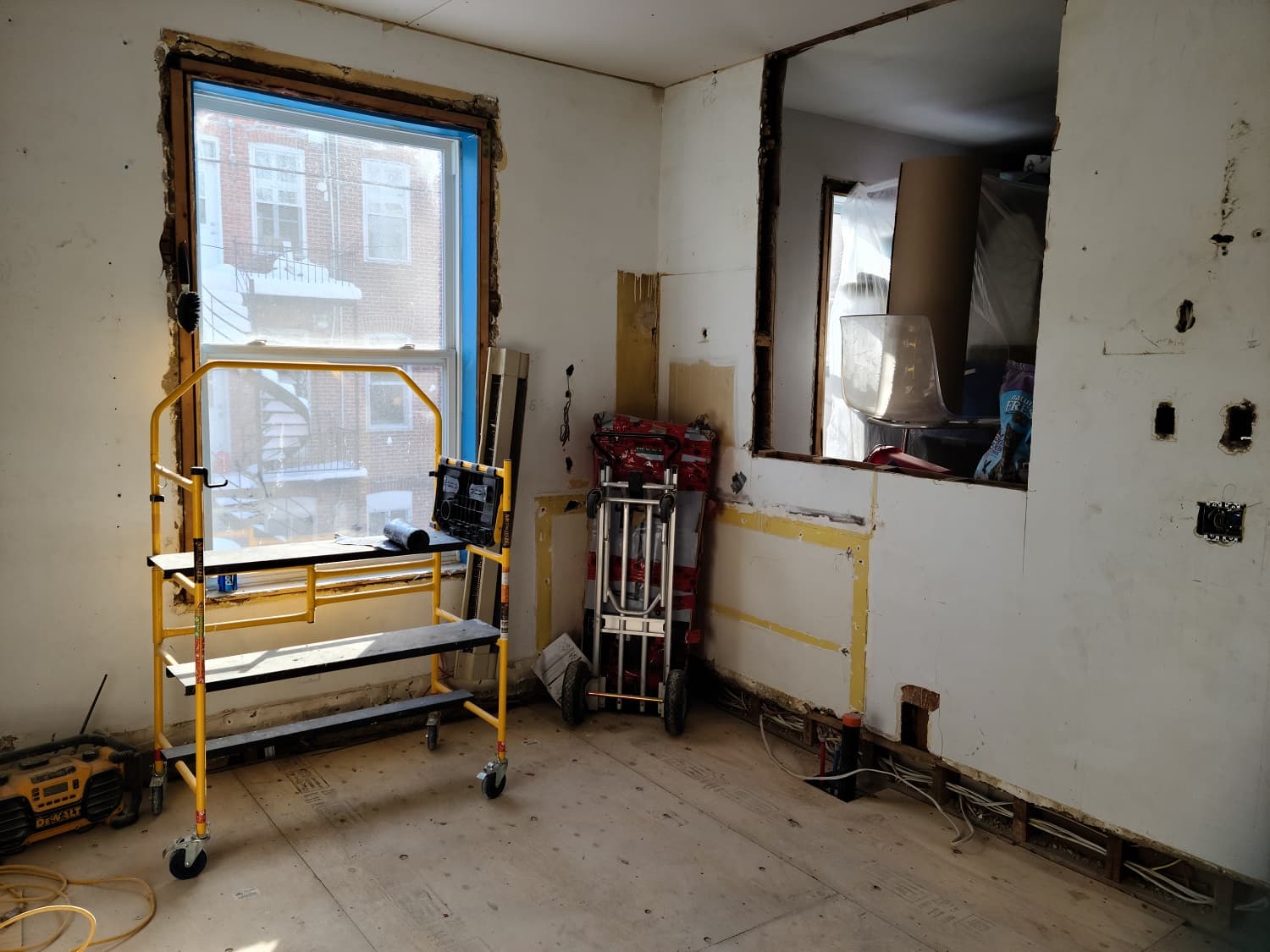What to include in a home renovation contract
By Léa Plourde-Archer
Updated on November 13, 2024

This article is aimed at both the client and the contractor who will be responsible for the renovation project. Both have a vested interest in making sure that the contract they sign is clear and contains all the information that is important to specify. For both parties, this is a question of protection and clarity.
What is a standard renovation contract?
A contract is a legally binding agreement between, in this case, the contractor and the person having their home renovated. It outlines crucial details including the parties involved, work description, costs, payment terms, signatures, completion dates, and any other additional details.
Giving or getting a quote and signing the contract
The field of construction and home renovation has a reputation that is hard to shake off, which is that contractors often improvise and pay little attention to detail. It is common to see contracts that are incomplete and even completely left unwritten.
Unfortunately, this sometimes leads to problems because, in the event of a problematic situation, a misunderstanding or a lack of honesty, the absence of written evidence can complicate the situation further. That's why it's so important to put everything in writing and to be very specific. Grey areas must be avoided.
With the increasing complexity of renovation projects, construction contract review has become essential to ensure agreements are comprehensive and clearly structured, helping both parties avoid potential misunderstandings.
Once a contract has been drawn up, it is important that the client and the contractor review it together point by point. This makes it easier to know if both parties are on the same page. In addition, this step can be a good way to detect signs of potential issues or areas of concern. For example, vague descriptions, missing information, or discrepancies between verbal agreements and written documentation could be red flags indicating a poorly organized or even ill-intentioned contractor.
The elements that must be included in a renovation contract

Source: canva
According to the Régie du Bâtiment du Québec and the Office of Consumer Protection, the following information should be included in a renovation contract:
The full name and address of the contractor;
The licence and permit number (if applicable);
A declaration stating that the contractor agrees to comply to municipal by-laws and building codes;
Their liability insurance information as well as the name of their insurance company;
A detailed description of the work to be done as well as the materials required for their completion;
The general conditions;
A description of the different parts of the project and the associated amounts;
The payment methods;
The total price of the work;
A signature from both parties.
Specifying the clauses associated with the contract
Any element that could cause the nature of the renovation contract to change should be written on the document. For example, the customer may request a written statement informing that in the event that additional work needs to be done, they must absolutely be notified.
The visual structure of the renovation contract
There are no specific instructions to follow regarding the disposition of the content presented in the contract. This does not mean that it should be written and presented randomly. For precision, the content should be divided into clear sections, separated by lines or spaces.
In general, the first section is used to identify the client and the contractor and present their contact information. The next section includes a description of the work to be completed with all the information related to the project.
The section on costs and payments is particularly important. This is where there may be potential sources of litigation. It is important for both parties to ensure that everything is clear with respect to the costs, deposits, timelines, terms and methods of payment.
The other sections vary from contract to contract, but in many cases, there is a calendar of the work, a portion covering insurance, guarantees, standards, security, clauses and conditions. Of course, at the end of the contract, boxes are included where the contractor and client can sign.
Renovation contract: what you should do in case of a problem

source: canva
As illustrated in the previous paragraphs, a poorly drafted contract can lead to problems. Unfortunately, it is not possible to go back once the document has been signed (except in certain occasions such as with door-to-door salespeople in the province of Quebec).
What's there to do in the event of a dispute due to a misunderstanding on a renovation contract? Several options are available to both parties. The first step, of course, is to try to come to an agreement to resolve the situation. However, if this is not possible, they can turn to the legal options. The tool that comes first and is generally very efficient is the formal notice. The party making the complaint sends the formal notice to the other party, asking them to offer compensation or to find a solution, failing which other procedures will be initiated. If the formal notice does not have the desired effect, they can turn to the courts to settle the dispute.
Faced with this seemingly complex process, there are resources available to simplify the steps and reduce associated costs. For example, Legalhood is an online service that allows you to send a formal notice quickly and inexpensively. It is also possible to use it for a negotiation service or to speak to a lawyer who will be able to offer legal advice.
Should a lawyer review the contract?
The Canadian Home Builder's Association recommends hiring a lawyer if: one, your project is complex; and two, if it's high value. Furthermore, if you don't agree with certain aspects of the draft or simply don't understand them, do not sign it.
Would you like to know more about the resources available to solve problems following the signing of a renovation contract? Here are some articles that might be useful:
Note: this text presents options in case a contractor does not fulfil their part of the contract. It does not represent legal advice. For specific advice about your case, talk to a lawyer.
Looking for something else?
Related articles
The latest industry news, interviews, technologies, and resources.

Editorial Team
•06 Dec 2025
In order for a renovation project to go well, it is essential to attach great importance to the planning stage. If many of us agree with that statement, what exactly is the specific task at hand?

Editorial Team
•27 Sep 2024
If you own a cottage and go there several times per year or per season, you may be considering taking on some renovations. Even if it was recently built, it’s never unnecessary or too late to add value to your property.

Cynthia Pigeon
•05 Dec 2025
The fenestra cochleae, more commonly known as a round window, has quite a distinctive flair, which adds a certain uniqueness to your home. However, its installation requires a certain dexterity and presents some particularities that should be considered before undertaking such a project.

Léa Plourde-Archer
•08 Nov 2023
If you plan to undertake major renovation projects in your home soon, your daily routine may be disrupted for a while. When the renovation is happening in a central part of the house such as the kitchen, it is important to plan the next few weeks carefully to avoid the possible inconveniences that the process may involve.

Editorial Team
•08 Nov 2023
A standard water heater takes up a lot of space in a home since it has a hot water tank that supplies warm water needed for dishes, showers, sinks, and any other household needs. Also, the tank may run out periodically when the demand for hot water exceeds the tank’s water storage capacity.